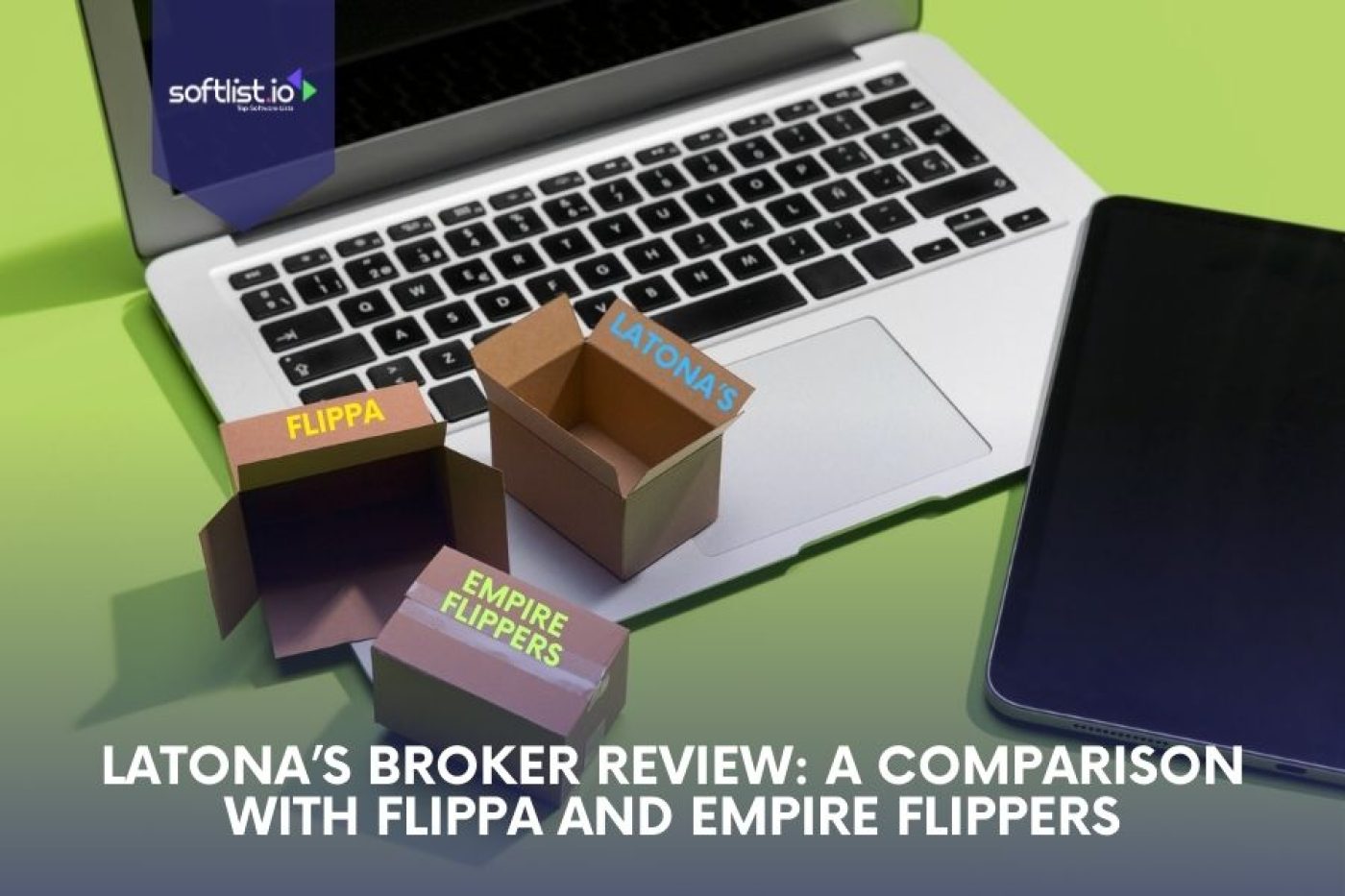Brand-New You would think that SEO Reporting would make your life easy. However, it can be difficult to make these reports fit your brand, keep data safe, and work with the tools you already have. You could waste time and miss out on good chances if you don’t handle it well. You might even lose clients’ trust, which could be bad for your business.
This blog will help you make reports that show off your brand, keep your data safe, and work well with your tools and answer common questions.
Start with the basics and work your way up to more advanced tips to learn how to make your SEO reports work for you.
Key Takeaways
- Essential for Branding: White-label SEO reporting allows agencies to deliver SEO reports under their own brand, reinforcing their brand identity and professionalism without the overhead of doing all the SEO work internally.
- Saves Time and Resources: By outsourcing the detailed task of white-label SEO reporting, agencies can focus more on client engagement and strategic decision-making, which are crucial for business growth and client satisfaction.
- Customization is Key: White-label SEO reports are highly customizable, enabling agencies to include their logos, brand colors, and adapt the reports to meet specific client needs and preferences, enhancing the overall client experience.
- Improves Transparency and Trust: Regular and detailed white-label SEO reports help maintain transparency about the SEO efforts being put in, which builds trust with clients as they can see tangible results and understand the value provided.
- Integrates with Existing Tools: White-label SEO reporting can smoothly integrate with existing SEO tools and platforms, ensuring a seamless workflow and consistent data management, which simplifies the reporting process.
What is White-Label SEO Reporting?
White-Label SEO reporting is an essential service for any SEO agency looking to streamline its reporting process and enhance its brand. White-Label SEO involves providing SEO services and reports under your agency’s brand, even though the actual work might be outsourced to another provider.
This service is vital for digital marketing agencies that want to offer comprehensive SEO solutions without investing in building an in-house team.
Definition of White-Label SEO
White-Label SEO is a service where an SEO reseller performs the SEO work while you brand it as your own. This approach allows you to offer a full suite of SEO services without having to hire a full-time SEO team. It’s an effective way to expand your service offerings and meet the diverse needs of your clients.
Explanation of White-Label SEO Reporting
White-Label SEO reporting refers to the practice of creating SEO reports that bear your agency’s brand, even if the SEO work was completed by a third-party provider.
These reports are customizable and can include your logo, brand colors, and any other elements that align with your agency’s brand identity. Tools like SEMrush, AgencyAnalytics, and DashThis make it easy to generate these reports.
Benefits of White-Label SEO Reporting for Agencies and Clients
- Streamline Workflow: Integrating white-label SEO reporting tools into your workflow helps to streamline the reporting process, saving time and effort.
- Customization: You can customize reports to match your brand and meet specific client needs. This includes adding your logo, brand colors, and custom domain.
- Enhance Brand Value: Providing branded reports enhances your agency’s professional appearance and credibility.
- Focus on Core Competencies: By outsourcing SEO services, you can focus on your core competencies, such as client relations and strategy development.
- Cost-Effective: White-label services can be more cost-effective than hiring in-house SEO specialists.
Why is White-Label SEO Reporting Beneficial?

Source: Canva Pro
White-Label SEO reporting is crucial for maintaining transparency and building trust with your clients. It helps them understand the value and impact of your SEO efforts and fosters a strong, ongoing relationship.
Importance of Transparency in SEO Campaigns
Transparency is key in any SEO campaign. Clients need to know what you’re doing to improve their SEO rankings and how it’s impacting their online presence.
White-label SEO reporting tools like Google Analytics, Google Search Console, and BrightLocal provide detailed insights into various aspects of your SEO campaigns, ensuring clients are always informed.
Building Trust with Clients
Regular, detailed reports help build trust with your clients. When clients can see tangible results and understand the strategies you’re implementing, they’re more likely to continue using your services. Using comprehensive white-label reporting tools, you can provide clear and concise updates on keyword rankings, backlink profiles, and website audit results.
Helping Clients Understand the Value and Impact of SEO Efforts
SEO can be complex and technical. White-label SEO reports break down this complexity, showing clients the direct benefits of your work.
By using SEO audit tools and local SEO tools, you can demonstrate improvements in local search visibility, keyword tracking, and overall site performance. This helps clients see the return on investment from their SEO campaigns.
What Should a Good White-Label SEO Report Include?
A good white-label SEO report is comprehensive, user-friendly, and tailored to meet the specific needs of each client. It should provide a clear overview of the SEO performance and include various key components.
Components of an Effective SEO Report
- Overview of SEO Performance: A high-level summary of the SEO campaign’s progress and key achievements.
- Keyword Rankings: Detailed keyword tracking to show how the client’s keywords are performing in search engines.
- Organic Traffic Data: Insights into the organic traffic trends using tools like Google Analytics.
- Backlink Analysis: Information on the backlinks acquired, their quality, and impact on the site’s authority.
- Technical SEO Issues: Identification of any technical issues through a white-label SEO audit tool.
- On-Page and Off-Page SEO Efforts: Summary of both on-page optimizations and off-page SEO strategies.
- Competitor Analysis: Insights into the client’s competitive landscape and how their site compares.
Customization Options to Meet Client Needs
- Branding: Customize the reports with your agency’s logo and brand colors.
- Metrics Selection: Choose the metrics that are most relevant to the client’s goals and industry.
- Report Frequency: Set the frequency of reports based on client preferences (e.g., monthly, quarterly).
- User-Friendly Format: Ensure the reports are easy to understand, using charts, graphs, and other visual aids to present data clearly.
By incorporating these elements and using the best SEO tools, you can create reports that not only inform but also impress your clients, helping to solidify your reputation as a top SEO agency.
When Should SEO Reports Be Generated?

Source: Canva Pro
Regular SEO reporting is critical for keeping your clients informed about their SEO campaign’s progress and performance. The frequency of these reports can vary based on several factors, but there are some general guidelines to follow.
Importance of Regular Reporting
Regular reporting ensures that both you and your clients stay updated on the SEO efforts and results. It helps in:
- Client Communication: Keeping your clients informed builds trust and transparency.
- Tracking Progress: Regular reports help track the progress of SEO campaigns, identifying what’s working and what needs adjustment.
- Decision Making: Frequent updates provide data that can influence strategic decisions, optimizing the SEO efforts for better results.
Recommended Reporting Frequency
The recommended frequency for SEO reports typically depends on the nature of the campaign and the client’s needs:
- Monthly Reports: These are the most common and provide a good balance between data freshness and manageability. Monthly reports allow you to track significant trends and changes over a reasonable period.
- Quarterly Reports: For long-term campaigns, quarterly reports can be useful. They provide a broader view of the SEO performance, making it easier to see long-term trends and outcomes.
- Weekly or Bi-Weekly Reports: For very active campaigns, especially in competitive industries, more frequent reporting might be necessary. This helps in making quick adjustments and staying ahead in search engine rankings.
Factors Influencing Report Frequency
- Client Expectations: Some clients might prefer more frequent updates, while others might be content with less frequent, more comprehensive reports.
- Campaign Goals: The goals and KPIs of the SEO campaign can determine how often reports should be generated. For example, a new client aiming for rapid growth might need more frequent updates.
- Data Availability: The availability of data from multiple sources like Google Analytics, SEMrush, and other SEO tools can also influence the reporting frequency.
What Tools Are Commonly Used for White-Label SEO Reporting?
Using the right SEO reporting tools can significantly enhance your reporting process, making it more efficient and accurate. These tools help integrate data from multiple sources and provide comprehensive insights.
Popular SEO Reporting Tools
- SEMrush: A powerful tool that provides detailed keyword tracking, backlink analysis, and site audit capabilities. Perfect for agencies looking to deliver comprehensive reports.
- Google Analytics: Essential for tracking organic traffic, user behavior, and conversion rates. It integrates seamlessly with other reporting tools.
- AgencyAnalytics: This tool offers a user-friendly interface and allows for easy customization of reports, including adding your agency’s branding.
- DashThis: Known for its ease of use and beautiful report designs, DashThis can help you create professional-looking reports quickly.
- BrightLocal: Specializes in local SEO reporting, making it ideal for agencies focusing on local search optimization.
Features and Benefits of These Tools
- Data Integration: These tools integrate data from various sources like Google Analytics, Google Search Console, and SEMrush, providing a comprehensive view of SEO performance.
- Customization: They offer a high level of customization, allowing you to create branded reports that match your agency’s identity.
- User-Friendly: The interfaces are designed to be intuitive, helping you generate reports with minimal effort.
- Scalability: These tools can handle the needs of both small agencies and larger ones with extensive client bases.
- Consistent and Professional: They ensure that your reports are consistent and professional, enhancing your credibility with clients.
How to Integrate These Tools into White-Label Reports
- Choose the Right Tools: Select the tools that best fit your agency’s needs and the specific requirements of your clients.
- Set Up Data Sources: Ensure that all relevant data sources like Google Analytics and SEMrush are connected.
- Customize Reports: Use the customization features to add your branding, choose the metrics you want to track and tailor the reports to each client’s needs.
- Automate Reporting: Many tools offer automation features, allowing you to set up recurring reports and spend less time on manual report generation.
How to Ensure Accuracy in White-Label SEO Reports?
Accuracy in SEO reports is crucial for maintaining credibility and trust with your clients. Inaccurate data can lead to misguided strategies and loss of client confidence.
Importance of Data Accuracy in Reporting
Accurate data is the foundation of effective SEO strategies. It helps in:
- Informed Decision Making: Accurate data allows you to make informed decisions about your SEO tactics.
- Building Trust: Clients need to trust the information you provide. Accurate reports enhance client trust and satisfaction.
- Measuring Success: Correct data is essential for measuring the success of SEO campaigns and demonstrating ROI to clients.
Best Practices for Data Collection and Analysis
- Use Reliable Tools: Always use trusted SEO tools like Google Analytics, SEMrush, and AgencyAnalytics to collect data.
- Cross-Check Data: Validate the data by cross-checking it with multiple sources. This helps in identifying any discrepancies and ensuring the accuracy of the information.
- Regular Updates: Ensure that your tools and data sources are regularly updated. Outdated data can lead to incorrect analysis and reporting.
- Consistent Methodology: Use a consistent methodology for data collection and analysis. This ensures that your reports are comparable over time.
Regularly Updating and Validating SEO Tools
- Tool Updates: Regularly update your SEO tools to their latest versions. New updates often include bug fixes, new features, and improved data accuracy.
- Data Validation: Periodically validate the data collected by your tools. This can involve manual checks or using multiple tools to verify the information.
- Training and Expertise: Ensure that your team is well-trained in using these tools. Proper training helps in accurate data interpretation and report generation.
How Can SEO Reports Be Customized for Different Clients?
Customizing SEO reports to meet the specific needs of each client is essential for demonstrating value and fostering long-term relationships. With white-label SEO services, you can tailor reports to align with your client’s unique requirements and preferences.
Importance of Tailoring Reports to Client Needs
- Showcasing Relevant Data: Different clients have different priorities. Some may focus on SE ranking, while others might prioritize traffic or conversion metrics.
- Building Trust: Customized reports show that you understand and cater to your client’s specific goals and challenges.
- Enhanced Client Communication: Tailored reports make it easier for clients to understand the data, leading to better communication and decision-making.
Customization Options
- Branding: Add SEO reports that include your client’s branding elements such as logos, brand colors, and custom domains.
- Metrics Selection: Choose the metrics that are most relevant to the client’s business goals, whether it’s keyword rankings, PPC performance, or content marketing success.
- Frequency: Adjust the frequency of client reports to suit the client’s needs, whether they prefer weekly updates or monthly summaries.
- Layout and Design: Use reporting tools that offer flexible layouts and design options, making the reports more visually appealing and easier to read.
Examples of Customized Reports for Various Industries
- E-commerce Clients: Focus on metrics like conversion rates, organic traffic, and keyword rankings for product pages.
- Local Businesses: Highlight local SEO performance, including local search visibility, Google My Business metrics, and customer reviews.
- B2B Companies: Emphasize lead generation, content marketing performance, and SEO’s impact on the sales funnel.
Using professional white-label SEO tools, you can create highly customized reports that meet the diverse needs of your clients, making your agency indispensable.
What Are the Common Challenges in White-Label SEO Reporting?
While white-label SEO reporting offers many benefits, there are also challenges you may encounter. Being aware of these challenges and knowing how to address them is crucial for delivering high-quality reports consistently.
Identifying and Addressing Common Reporting Issues
- Data Discrepancies: Different tools may show varying results. To address this, use multiple data sources and cross-verify the information.
- Overwhelming Data Volume: Large volumes of data can be difficult to manage and interpret. Use a streamlined approach to focus on the most relevant metrics for your clients.
- Misinterpretation of Data: Clients might misinterpret complex data. Simplify the reports and provide explanations for each metric to ensure clear understanding.
Solutions to Overcome These Challenges
- Use Best Tools: Utilize the best tools like SEMrush, Google Analytics, and other white-label reporting tools to gather accurate data.
- Streamlined Reporting: Develop a streamlined reporting process that focuses on key performance indicators (KPIs) and aligns with client goals.
- Client Education: Educate your clients on what the data means and how it impacts their business. Regular client communication helps in this regard.
- Consistent Methodology: Maintain a consistent methodology for data collection and analysis to ensure reliability and comparability over time.
By addressing these challenges, you can provide reliable, insightful reports that help your clients understand their SEO performance and make informed decisions.
How to Present White-Label SEO Reports to Clients?

Source: Canva Pro
Presenting SEO reports effectively is as important as the data itself. A well-presented report can enhance client satisfaction and reinforce your agency’s value.
Best Practices for Presenting Reports
- Clear Structure: Organize the report in a logical flow, starting with a high-level overview and drilling down into specific details.
- Visual Aids: Use charts, graphs, and visual aids to make the data more digestible and engaging. Tools like Google Data Studio can help create visually appealing reports.
- Narrative: Include a narrative that explains the data, highlights key findings, and outlines the next steps. This helps clients know what they’re looking at and why it matters.
Tips for Effective Communication
- Tailor to the Audience: Adapt your presentation style to suit the client’s level of SEO knowledge. Some clients might prefer technical details, while others might need simpler explanations.
- Focus on Impact: Highlight how your SEO efforts are impacting the client’s business. Show tangible results such as improved SE ranking, increased traffic, or higher conversion rates.
- Actionable Insights: Provide actionable insights and recommendations based on the data. This shows that you are not just reporting but also guiding the client toward improvement.
Using Visual Aids
Visual aids can significantly enhance the clarity and impact of your reports. Here are some tips:
- Graphs and Charts: Use line graphs for trends, bar charts for comparisons, and pie charts for proportions.
- Color Coding: Use consistent and professional color schemes that align with your agency’s and client’s brand colors.
- Interactive Elements: If possible, provide interactive elements that allow clients to explore the data further.
Preparing for Client Questions and Feedback
- Anticipate Questions: Be prepared to answer common questions about the data and SEO performance.
- Be Transparent: If there are areas where performance did not meet expectations, explain why and outline your plan for improvement.
- Encourage Feedback: Invite clients to provide feedback on the reports. This helps you refine your reporting process to better meet their needs
Final Thoughts
White-Label SEO reporting is essential for providing top-quality SEO services. You build trust, improve client communication, and demonstrate your agency’s expertise by delivering customized, accurate, and insightful reports.
Overcoming challenges like data discrepancies and overwhelming data volumes is key to ensuring your reports are both impactful and professional.
To enhance your SEO reporting, check out our article on SEO Automation Software. Learn how automating your SEO tasks can save you time and improve report accuracy.
Also, don’t miss our review of the ‘Top 10 SEO Tools Software’. Discover the best tools to meet your agency’s needs and streamline your SEO efforts. Don’t forget also to check our ‘Deals’ to save some cash. Read now to take your SEO reporting to the next level!








